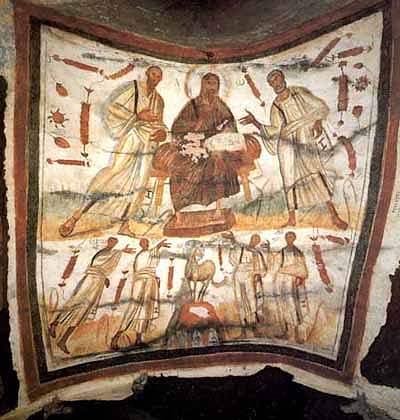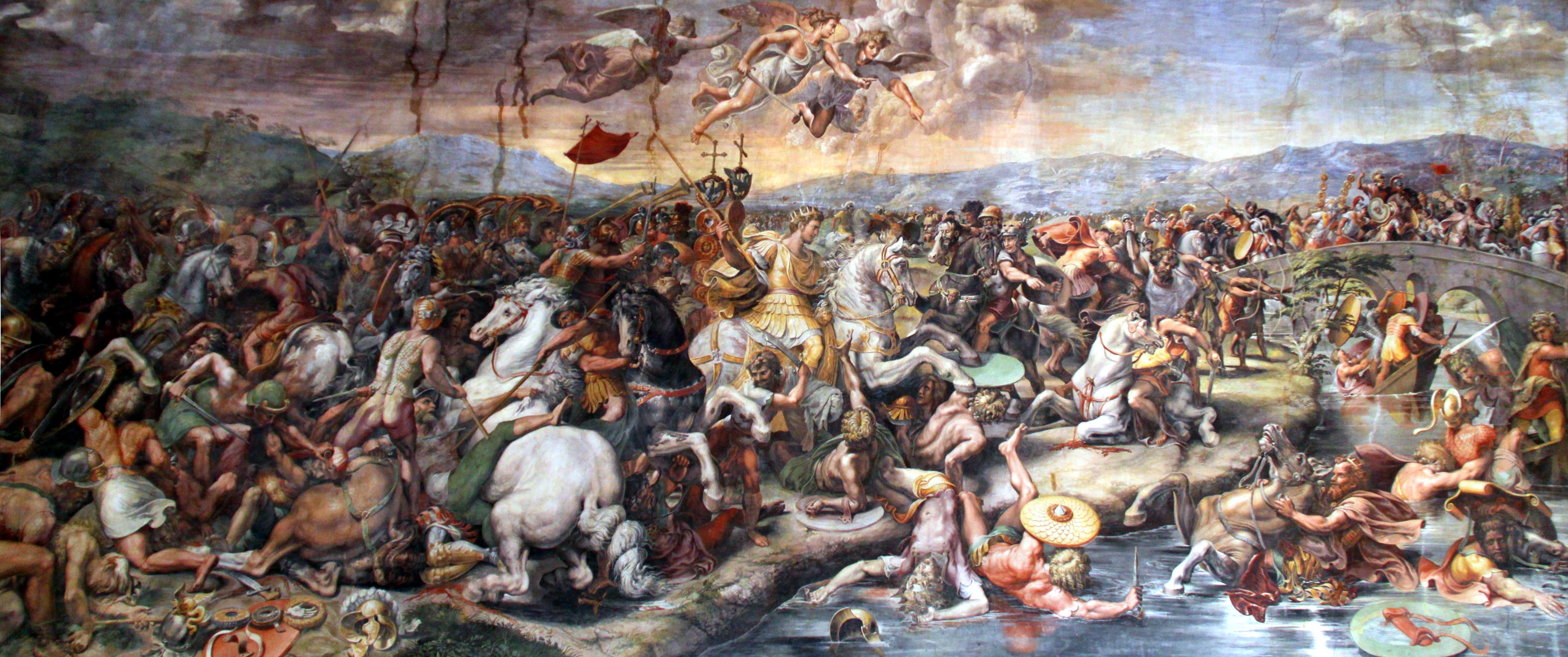The Coming of Christendom
 Intro | Part I | Part II | Part III | Part IV | Appendix
Intro | Part I | Part II | Part III | Part IV | Appendix
It is no exaggeration to say that the fourth century had (and continues to have) an impact on the church. For three hundred years Jesus words “If they me persecuted me, they will persecute you” had been a feature in the life of the church inside and outside Roman Empire. Yet, as we saw in the previous post, the more the church was persecuted, the more it grew. “The blood of the martyrs,” declared Tertullian, “was the seed of the church”.
The imperial campaign against the church continued in the fourth century. However, by the close of the fourth century Christianity had moved from being an illegal, “destabilising” movement within the empire to the imperially endorsed religion of the state. The paradigm of how the church had related to society and the government for three hundred years suddenly changed. The coming of Christendom, as we now know it, turned the old realities on their head and created a moment of confusion for the Church. Many readers will be familiar with the theological reverberations this caused; the fourth and fifth centuries witnessed intense and often violent theological debates about the nature of Christianity. Who is Jesus, and how does he relate to the Father? We’ll explore these debates much more fully in the post five. In this post, I want to focus on the impact the fourth century had how the church conceived of government and itself. Firstly, let me set the scene.
Background
When Diocletian died in 311AD, the outlook for Christians within the Roman Empire looked grim. As Emperor, Diocletian had instigated a wide spread campaign persecution against the Christians in 303AD, which continued unabated after his abdication in 304AD. What we now know as the Diocletianic or Great Persecution was the last imperial persecution of Christians. It was also the widest ranging and the most violent.
It is said that Diocletian was inspired to renew the anti-Christian actions of the third century when, on a visit to the prophet in Didyma to obtain a divine oracle, he was told the presence of Christians in the empire had rendered the god silent. Beginning on 23 February 303, the feast of the Terminalia, for Terminus, the god of boundaries, the program to terminate the Christian presence within the empire began. In a series of edicts, Christians gradually lost their rights: churches and Bibles were destroyed, Christian senators and soldiers lost their rank, former slaves were re-enslaved, and Christians lost the right to properly defend themselves before the courts. Christians were also forced to make sacrifices to the Roman gods; those who refused faced imprisonment, torture and even death. The fourth century writer Eusebius records that the Roman prisons could not handle the volume of Christians being arrested and ordinary criminals had to be released from prison.

Diocletian’s successors continued to wage war on the Church after his abdication, even through six years of civil war. The decisive moment came in 312AD when the Emperor Constantine defeated Maxentius in the Battle of Milvian Bridge, leaving Constantine as the sole ruler of the western empire. However, Constantine claimed to have freed Rome from the yoke of tyranny in the name of Christ – his soldiers having fought at Milvian Bridge with standards that displayed the "Chi-Rho" symbol ☧, formed from the first two Greek letters of the word Christ.
Over the next 25 years of his reign, Constantine not only made a large impact on Roman politics, uniting the empire under his rule; he has played an important and increasing role in the life of the church: he officially ended the persecution of Christians (in the western empire through the Edict of Milan in 313, and in 324 in the eastern empire); launched a large scale campaign to build churches throughout the empire (such as the Church of the Holy Sepulchre in Jerusalem and the original St Basilica’s in Rome), moved the capital city to Byzantium (dedicating the city as Constantinople solely to Christ and not the ancient gods of Rome); and organised the first ecumenical council to determine the theology of the church at Nicaea in 325.

With one exception, Constantine’s successors continued these policies; in 380 Christianity was effectively declared the state religion of the empire. In 392, with the structure that had supported it for centuries crumbling around it, pagan worship was banned within the empire. Rome – long the persecutor of the church, was now lead by Emperors who not only endorsed but also sought to actively promote the interests of the church.
How would the Christians respond to these new circumstances?
Images:
Top: Christ Between Peter and Paul, 4th century; Catacomb of Saints Marcellinus and Peter on the Via Labicana. "Christ with the book of the Gospels is seated between Peter and Paul. Below, the Lamb is standing in the centre on a hill, from which flow out the four symbolic rivers of Scripture. To the sides are the most venerated Martyrs, with their names: Gorgonius, Peter, Marcellinus, Tiburtius, all acclaiming the Lamb" (Christian Catacombs of Rome).
Middle: The Battle of Milvian Bridge, by Giulio Romano. From the Vatican City, Apostolic Palace.
Bottom: A coin of Constantine (c.337) showing a depiction, and on the reverse his labarum with the "Chi-Rho" symbol ☧ spearing a serpent.













